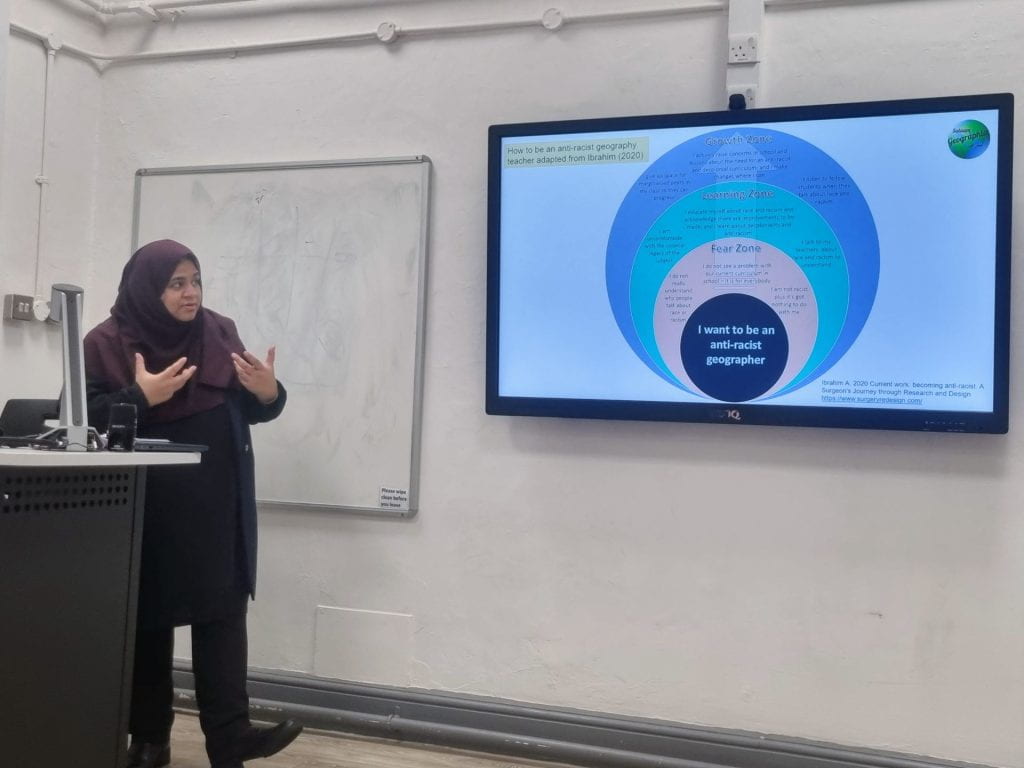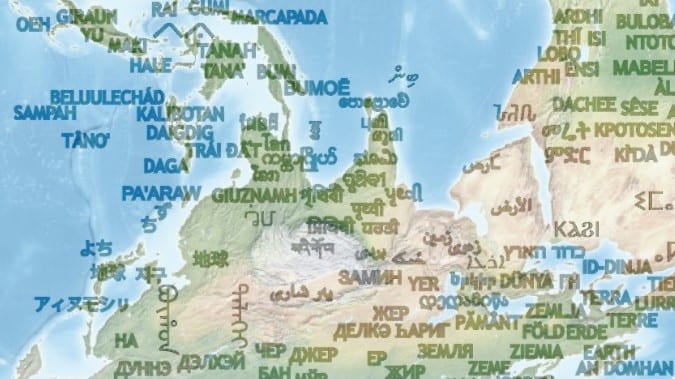“Who am I?” Workshop with Iram Sammer in support of anti-racism and decolonisation in the classroom
Monday 22nd January – evening workshop on Exploring Pedagogy, Antiracism and Decolonial Geography
It was a great pleasure to host Iram Sammer at the University of Bristol’s School of Geographical Sciences for a networking and CPD event for local teachers. We are grateful to the GA’s Sheila Jones Legacy Fund for supporting this and were pleased to see some new faces at the event.
The audience were treated to a workshop rich with examples, thought-provoking questions, and extremely useful suggestions to adopt in the classroom. Iram is so passionate about this material and promotes a comfortable and positive space to talk about challenging issues. It is no surprise that she is much in demand for advice and guidance in schools and received the 2022 RGS Ordnance Survey Award for excellence in geography education at secondary level. Iram is currently undertaking a PhD at Kings College London that focusses on this material.

We covered so much ground, including Black Lives Matter, Colston, Palestine, Rhodes, heritage, social media, evolution, maps and more. The audience were brought into the conversation and whilst the focus was on the secondary education settings, we also considered how approaches in primary and higher education settings might be shaped.
Iram draws upon her own experiences in her successful approaches, backed up by pedagogical research and reflections. We started with her effective “Who am I?” exercise that works in so many situations. By revealing something of yourself, ethnicity, heritage, journey and interests, teachers and pupils can celebrate both diversity and commonality within the room. Where there might be an initial ‘disconnect’, this turned around. Explore further insights on Iram’s blog.
Layla Bray, Geography Teacher at Bristol Cathedral Choir School reflects on the session:
“The workshop created by Iram was a thought provoking reminder into the power of geographical pedagogy. We are given a unique area in the national curriculum on which there is not enough education of staff and pupils. Iram did a wonderful job of reminding me why I got into teaching in the first place, a clear knowledge of her subject and anti racism within not only Geography but the schooling system itself. I not only came away questioning and reflecting on my own practise, but had tangible strategies and discussions to raise with pupils and my department about how we can continue the decolonising of Geography in the most effective way”.
We ended the search on maps and textbooks and considered alternative views from the traditional versions used.

